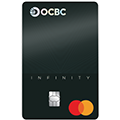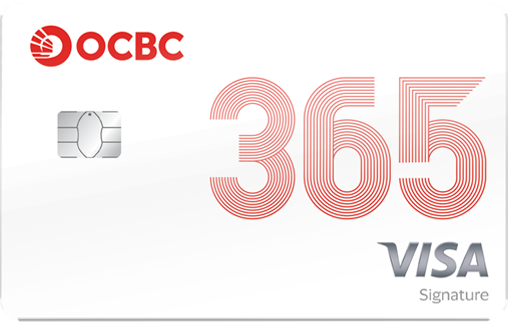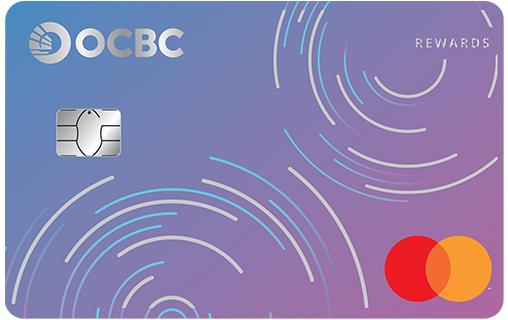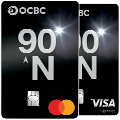Knowing your risk-effort appetite may help.
Learn how to invest
Learn more about
-
What is a unit trust?
A unit trust is a fund comprised of money contributed by multiple investors, which can include members of the general public. The more money an investor puts into the fund, the more units of the fund the investor will receive. The fund is then invested into a variety of assets to achieve a stated investment objective by a team of professionals. Unit trusts are also known as mutual funds or collective investment schemes.
-
Why invest in unit trusts?
Here are 4 reasons why unit trusts make a great investment:
- Low barrier to entry: You do not need a huge sum of money to invest in unit trusts. For selected funds, the minimum initial invest amount is just 1,000 SGD. Alternatively, you can set up a Monthly Investment Plan (MIP) from as little as 100 SGD/month.
- Professional expertise: Trust the professionals and leverage their risk management capabilities and market insights to seek outperformance. While you do have to pay an annual management fee, this is already included in the fund’s NAV and does not appear as an extra cost to you.
- Diversification: Unit trusts offer one of the easiest ways to manage risk through diversification because the fund is typically invested in a large base of assets. Even if one company were to be performing poorly, your portfolio will still be relatively well balanced through the returns of other companies.
- High liquidity: You can easily buy and sell most unit trusts online or through a Relationship Manager.
-
How are unit trusts priced?
The fund price is equal to the value of the fund's underlying assets minus outstanding liabilities. This is known as the net asset value (NAV) and it is calculated at the end of every business day by the fund manager.
-
What are some of the different types of unit trusts?
- Equity Funds: These are funds that invest solely in stocks.
- Fixed Income Funds: These are funds that invest solely in bonds.
- Balanced Funds: These are funds that invest in a combination of stocks and bonds.
-
What are the fees and charges?
How much will it cost me?
- A one-time sales charge is applicable for lump sum investments.
- A sales charge is applicable for recurring monthly investments into the fund.
Calculate online sales charge for me

Do it yourself online
0.88% of investment amount
Invest via our OCBC app or Internet Banking to enjoy lower rates.0.88% of investment amount
Invest via our OCBC app or Internet Banking to enjoy lower rates.
Receive expert advice
Up to 5% of investment amount
Hear expert advice from our personal financial consultants before you invest.Up to 5% of investment amount
Hear expert advice from our personal financial consultants before you invest. -
How can I invest in unit trusts?
Invest in unit trusts via the OCBC app, Internet Banking or at any OCBC branch. Unit trusts can be purchased using cash, SRS* and/or CPF*.
*Selected funds
Via the OCBC app:
Step 1: Log in to the OCBC app > More > Investments > Unit Trusts
Step 2: Select your fund > Click “Proceed to buy”
Step 3: Choose how you would like to invest and enter your preferred amount
Step 4: Review all details and click “Proceed to buy”, and you’re done!
Via OCBC Internet Banking:
Step 1: Log in via Internet Banking > Click Investments & insurance > Unit Trust
Step 2: Select your fund under the “Top fund ideas” or “Our selected funds” tabs > Click “Proceed to buy”
Step 3: Choose how you would like to invest and enter your preferred amount
Step 4: Review all details and click “Proceed to buy”, and you’re done!
-
What is RoboInvest?
RoboInvest is a digital investment platform that helps investors make investment decisions, without the hassle of monitoring their portfolios.
Our RoboInvest portfolios go through rebalancing every quarter or every 6 months, ensuring your investments stay aligned with market opportunities. Each rebalancing is guided by our portfolio managers, who carefully select new constituents to optimise performance and manage risk – so you don’t have to. -
Why invest in RoboInvest?
Here are 3 reasons why RoboInvest makes a great investment:
- Low barrier to entry: You do not need a huge sum of money to invest in RoboInvest. For selected portfolios, the minimum invest amount is just 100 USD. You may also choose to set up a Monthly Investment Plan (MIP).
- Low maintenance: RoboInvest offers a disciplined yet “hands-off” approach to investing and takes the decision-making out of your hands.
- Diversification: Each RoboInvest portfolio provides you with immediate access to various industries, regions and asset classes by investing from as low as 100 USD and with minimal effort.
-
What does RoboInvest invest in?
When you invest in a robo portfolio, your money is diversified into a mixture of stocks, bonds, ETFs and precious metals such as gold.
-
What are the available investment portfolios?
RoboInvest offers 6 Diversified (Risk-based) portfolios which give you broad exposure to the financial markets. There are also 31 Focused portfolios ranging from tech to healthcare, and beyond. You can also consider investing in the Income Portfolio to earn passive income with a diversified portfolio of bonds, REITs and equity ETFs.
-
What are the fees and charges?
Management Fee

Additional exchange fees and charges applies, which vary depending on the markets and trading channels used to execute the orders.
-
How do I start investing in RoboInvest?
Whether you're a new or experienced investor, setting up and managing your portfolio with OCBC RoboInvest is fast, easy, and convenient. You will need an OCBC deposit account with OCBC Online Banking access. If you do not have one, you can apply instantly for an account with our debit cards.
Via the OCBC app:
Step 1: Log in to the OCBC app > More > Investments > RoboInvest
Step 2: Select your portfolio based on:
- Focused themes
- Diversified portfolios
- Income Portfolio
Step 3: Select your portfolio > Click "Invest now"
Step 4: Enter the amount you want to invest > Click "Next"
Step 5: Confirm your deposit account details and click "Next"
Step 6: Review all details and click "Confirm", and you're all done!
Via OCBC Internet Banking:
Step 1: Log in via Internet Banking > Click Investments & insurance > RoboInvest > Get Started
Step 2: Select your portfolio based on:
- Focused themes
- Diversified portfolios
Step 3: Select your portfolio > Click "Invest now"
Step 4: Enter the amount you want to invest > Click "Next"
Step 5: Confirm your deposit account details and click "Next"
Step 6: Review all details and click "Confirm", and you're all done!
-
What are Precious Metals?
Precious metals are metals that have been recognised as having high economic value due to various factors. This includes their rarity, intrinsic qualities and documented role as a store of value.
Gold, silver and platinum are usually regarded as the most popular precious metals. These metals tend to retain their purchasing power in a rising interest rate environment. As such, they are often sought after by investors to hedge against inflation and economic uncertainty.
-
Why invest in Precious Metals?
Here are 2 reasons to diversify using precious metals:
- Inflation hedge: Precious metals can store value better during inflationary spikes because the value of precious metals is not correlated to market movements. This means that gold can retain its value better during times of uncertainty.
- Diversification: Similarly, precious metals are less correlated to risk assets such as equities and therefore provide diversification within a portfolio.
-
What are the fees and charges?
Spread Cost
The indicative price already includes the spread cost. There is no other administrative fee.
-
How can I invest in Precious Metals?
Use the OCBC app to open a Precious Metals Account and start investing in gold and silver.
Step 1: Log in to the OCBC app > More > Investments > Precious Metals.
Step 2: View the information on both gold and silver.
Step 3: Open a Precious Metals Account instantly if you do not have one.
Step 4: Enter your purchase details. Choose between “Amount to invest” and “Quantity”.
Step 5: Complete your transaction. You may now track your investments!
-
What is Foreign Exchange?
Foreign exchange (FX) is the trading of one trading of one currency for another, e.g. converting euros to US dollars. These transactions take place on the FX market and can also be as simple as changing currencies at your local bank or money changer.
-
Why invest in Foreign Exchange?
Here are 3 reasons why FX trading makes a great investment:
- High liquidity: The FX market is open 24 hours a day, five days a week across major global financial centres (FX trading is available 24/7 on the OCBC app). This means that foreign currencies can be quickly bought or sold at any time, with no lock-in period.
- Capital appreciation: The high volume of currency trades each day can make the price movements of some currencies volatile. This volatility can create an exciting range of opportunities for short-term traders. But as always, only invest an amount that is in accordance with your risk appetite to protect your downside.
- Diversification: Trading foreign currencies is just another way to diversify your portfolio and manage your risk. FX trading itself allows you to capitalise on global events through exposure to different market regions.
-
How does Foreign Exchange trading work?
Currencies are quoted in pairs for trading such as EUR/USD, which represents the euro (EUR) versus the U.S. dollar (USD). A price is associated with the currency pair to indicate how much it would cost to exchange the currencies for one another. This is known as the exchange rate.
The objective of FX trading is to exchange currencies for one another with the expectation that the price will change. Specifically, you are hoping that the value of the currency you bought will increase compared to the one you sold.
For example, if the rate to exchange EUR/USD is 1.1800, this means that it costs 1.1800 USD to buy one euro. Let’s assume you purchase 10,000 euros with 11,800 USD. Two weeks later, the rate to exchange EUR/USD is 1.2500, and you exchange your 10,000 euros back into US dollars. This gives you 12,500 USD and a net profit of 700 USD.
Buy: 10,000 EUR x 1.1800 = 11,800 USD
Sell: 10,000 EUR x 1.2500 = 12,500 USD
Profit: 12,500 USD – 11,800 USD = 700 USD -
What are the fees and charges?
Spread Cost
The indicative price already includes the spread cost. There is no other administrative fee.
For offline transactions
Deposit/ Withdrawal in FX Notes: Minimum 1% commission-in-lieu of exchange
Minimum excess fee:
- AUD 10
- CAD 8
- EUR 6
- GBP 4
- HKD 40
- NZD 12
- USD 5
-
How can I invest in foreign currencies?
In order to start investing, you will need to have an OCBC Global Savings Account. If you do not have one, you will be prompted to open the account first.
Step 1: Log in to the OCBC app.
Step 2: Tap on “Foreign Exchange”.
Step 3: Enter the amount and currency.
Step 4: Tap on “Exchange”.
Step 5: Review your transaction.
-
What are equities?
Equities represent the rights to own a company. You become a shareholder of a company when you buy its stock and this entitles you to participate in its profits. If a company performs well, you enjoy capital gains due to a rise in its share price. In addition, some companies may choose to distribute dividends as part of your investment return. Conversely, when a company performs poorly, you may incur losses due to a fall in its share price.
The terms equities, stocks, shares and securities are often used interchangeably.
-
Why invest in equities?
Here are 3 reasons why equities make a great investment:
- High liquidity: Equities can be bought or sold on the stock exchange with no lock-in period.
- Capital appreciation: Generally, the value of a stock tends to increase in favourable market conditions and/or when a company performs well, providing you with an opportunity to potentially earn a net profit when you sell your shares at a higher price than what you bought them for. While equities have higher volatility relative to other instruments, their return has historically tended to outperform cash or bonds in the long run, making them a good long-term investment.
- Maximise income: Some companies pay their shareholders dividends, allowing you to take advantage of a company’s growth and earnings. Though not always guaranteed, these dividends can potentially provide you with a regular income stream, enhancing your returns.
-
How are shares priced?
2 main factors affect the performance of share prices:
- Fundamentals: This refers to a company’s operational efficiency, financial well-being, and the public’s expectations of its future development. Greater confidence in a company’s prospects will lead to increased demand for its stock and push prices up, while a loss of confidence in the company may lead to investors selling its stock and causing prices to fall.
- Macroeconomics: A company’s share price is also largely determined by market conditions, such as interest rate movements, monetary policies and market sentiment.
-
What are the fees and charges?
Trading Commission Rates & Charges
Rates shown is applicable for traded currency in SGD
For counters traded in other currencies, please view all commissions and charges or contact us at 1800 338 8688.
All transactions are subject to the following fees:
- Clearing fees: 0.0325% of the contract value
- SGX trading access fees: 0.0075% of the contract value
- GST on commission, clearing fees and SGX trading access fees
- SGX settlement instruction fees: $0.35 per contract
- Exchange fees are subjected to change by respective Exchanges from time to time without prior notice
- Invest Online
- Broker Assisted
Contract Value Invest Online Broker Assisted ≤ S$50,000 0.275% of investment amount 0.50% of investment amount S$50,000 – S$100,000 0.22% of investment amount 0.40% of investment amount > S$100,000 0.18% of investment amount 0.25% of investment amount Min. Commission S$25 S$40 -
How can I invest in equities?
Step 1: Apply for an OCBC Online Equities Account
Submit your application by filling in the online form via the OCBC app or Internet Banking.
You will be asked to select a reference account, which will be used for your GIRO arrangement for your trade settlements.
For instant account opening, you may apply via the OCBC app from 9am to 5.30pm (Mon – Fri).
Step 2: Wait for confirmation
Applications via the OCBC app
If your application is successful, your Online Equities Account will be opened within the same day.Applications via OCBC Internet Banking
If your application is successful, you will receive a confirmation email within 1 working day at the address provided in the online form.Step 3: Log in to your account and start investing
You can start investing right away via the OCBC app.
-
What are blue chip stocks?
Blue chip stocks are shares that belong to very large and well-established companies with a history of sound financial performance. Investors turn to blue chip stocks because they tend to be relatively stable and often pay dividends.
The term “blue chip” comes from the world of poker, where blue chips are typically considered the highest value pieces.
-
Why invest in blue chip stocks?
Here are 3 reasons why blue chip stocks make a great investment:
- Name recognition: Blue chip companies have a competitive edge over other companies in the market owing to their reputation. Put simply, this means that holding their stock is prestigious.
- Reliability: While not immune from losses, blue chip stocks generally have a demonstrated history of weathering market downturns. For this reason, we believe it appropriate to include blue chip stocks as core holdings in your investment portfolio for the long term. Remember, it is important to build a well-diversified portfolio that consists of allocation to various asset classes to manage your risk exposure.
- Maximise income: Most blue chip companies pay dividends, allowing you to take advantage of their growth and earnings. Though not always guaranteed, these dividends can potentially provide you with a regular stream of income regardless of the daily swings in its share price.
-
What makes a company a blue chip?
Blue chip companies are usually industry leaders and have a large market capitalisation. In Singapore, companies listed on the Straits Times Index (STI) are generally blue chip stocks.
-
What are the fees and charges?
Buy & Sell Fees
Grow your investment portfolio and sell your units easily online through OCBC.

Buy online
- For customers aged below 30 years old (based on calendar year), with initial investment of up to S$500 per counter:
0.88% flat fee of the total sales proceeds - For all other customers:
0.3% of investment amount or S$5 per counter, whichever is higher
- For customers aged below 30 years old (based on calendar year), with initial investment of up to S$500 per counter:
0.88% flat fee of the total sales proceeds - For all other customers:
0.3% of investment amount or S$5 per counter, whichever is higher

Sell online
- For customers aged below 30 years old (based on calendar year), with initial investment of up to S$500 per counter:
0.88% flat fee of the total sales proceeds - For all other customers:
0.3% of the total sales proceeds or S$5 per counter, whichever is higher
- For customers aged below 30 years old (based on calendar year), with initial investment of up to S$500 per counter:
0.88% flat fee of the total sales proceeds - For all other customers:
0.3% of the total sales proceeds or S$5 per counter, whichever is higher
- For customers aged below 30 years old (based on calendar year), with initial investment of up to S$500 per counter:
-
How can I invest in blue chip stocks?
Step 1: Choose how much and what to invest
Decide on your monthly investment amount and select one or more BCIP counter(s) to invest in.
Step 2: Apply for BCIP
Apply for BCIP via the OCBC app or Internet Banking. All you need is an OCBC deposit or SRS account.
Step 3: Build your portfolio
We receive your orders from the first day of the month up to 12 pm on the last business day of the month, and will carry out your instructions on the 22nd of the following month, or in the event we are unable to do so, on the 22nd of the second following month. You will enjoy dividends, whenever declared by the respective companies or exchange traded funds (ETF).
Step 4: Review your portfolio
Review your plan, change your orders or sell your shares via the OCBC app or Internet Banking.
I want to learn more about investing in

Start your investment journey with OCBC today
through OCBC Online Banking or visit us at a
branch to open an account immediately.
For new customers
Open your account instantly when you apply with Myinfo via Singpass login.
If you do not have Singpass, you can apply online with these documents
For Singaporeans and Permanent Residents:
NRIC
Additional documents
Include any one of the following documents:
- Phone bill
- Half-yearly CPF statement
- Any bank statement
For OCBC customers
If you have a current or savings account with us, you can apply instantly via Internet Banking with only a few clicks.
Additional exchange fees and charges
The 15 share counters are mostly components of the Straits Times index (STI). 6 Exchange Traded funds are also available.
Singapore Exchange
Clearing Fee
0.0325% of contract value with a maximum charge of SGD 9999. GST is applicable for SG Residents.
Trading Fee
Trading Fee
Hong Kong Exchange
Stamp Duty
0.1% of contract value
Exchange Fee
0.077% of contract value
US Exchanges - NASDAQ, NYSE and AMEX
Stamp Duty
0.1% of contract value
SEC Fees (for sell only)
0.00221% of gross execution proceeds
London Stock Exchange
Stamp Duty (for buy only)
0.5% of contract value
Levy
Panel for Takeovers and Mergers (PTM) levy of GBP 1 is applied on buy and sell transactions where the Gross Value of the trade exceeds GBP 10,000
Europe Markets - France NYSE Euronext Paris
Financial Transaction Tax (for buy only)
0.3% of contract value for large cap stocks. The full list of the 109 affected Stocks can be found in the official application decree (in French).
Important note:
Commission is subject to prevailing Singapore GST (if applicable)
Exchange related fees may be subjected to change from time to time without notice. Additional fees and taxes by respective countries may apply. Read more on stock trading conditions.
Online commission rates and fees
|
|
 What is ‘SRS’?
What is ‘SRS’?
The Supplementary Retirement Scheme (SRS) is a government scheme that helps you enjoy tax savings on the funds you contribute while saving up for a comfortable retirement.
Contributions into your SRS Account may be used to purchase various investment instruments to earn potentially higher returns.
Unit Trust Sales Charge Calculator
Investment details
Your one-time sales charge
S$ 44.00
of your investment amount
Calculated based on current online sales charge of 0.88% of investment amount.












































